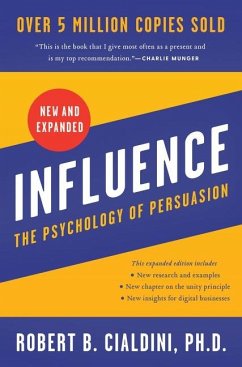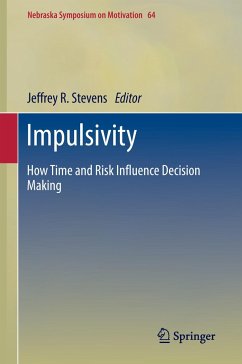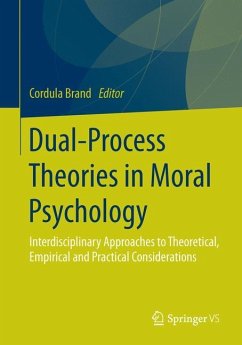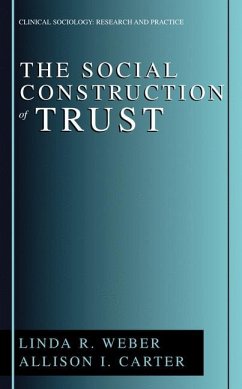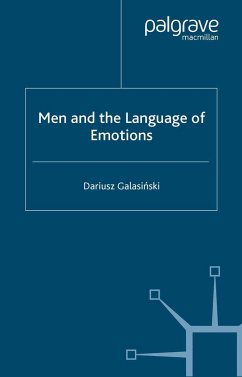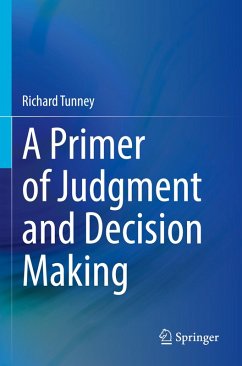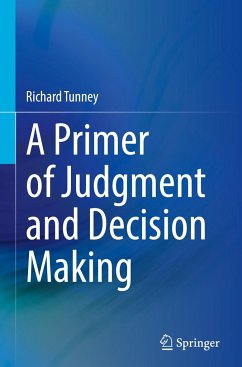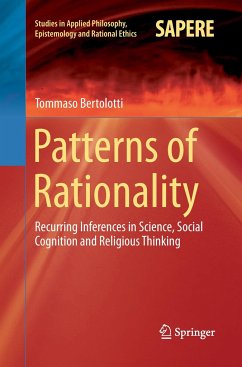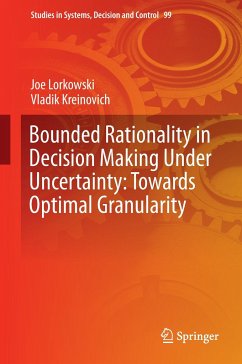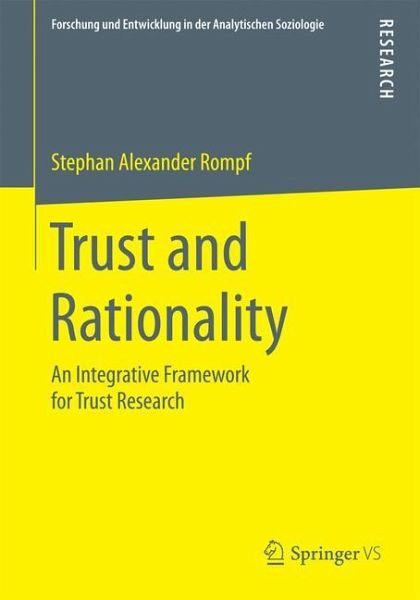
Trust and Rationality
An Integrative Framework for Trust Research

PAYBACK Punkte
20 °P sammeln!
Combining economic, social-psychological and sociological approaches to trust, this book provides a general theoretical framework to causally explain conditional and unconditional trust; it also presents an experimental test of the corresponding integrative model and its predictions. Broadly, it aims at advancing a cognitive turn in trust research by highlighting the importance of (1) an actor´s context-dependent definition of the situation and (2) the flexible and dynamic degree of rationality involved. In essence, trust is as "multi-faceted" as there are cognitive routes that take us to the...
Combining economic, social-psychological and sociological approaches to trust, this book provides a general theoretical framework to causally explain conditional and unconditional trust; it also presents an experimental test of the corresponding integrative model and its predictions. Broadly, it aims at advancing a cognitive turn in trust research by highlighting the importance of (1) an actor´s context-dependent definition of the situation and (2) the flexible and dynamic degree of rationality involved. In essence, trust is as "multi-faceted" as there are cognitive routes that take us to the choice of a trusting act. Therefore, variable rationality has to be incorporated as an orthogonal dimension to the typological space of trust. The theory presents an analytically tractable model; the empirical test combines trust games, high- and low-incentive conditions, framing manipulations, and psychometric measurements, and is complemented by decision-time analyses.





